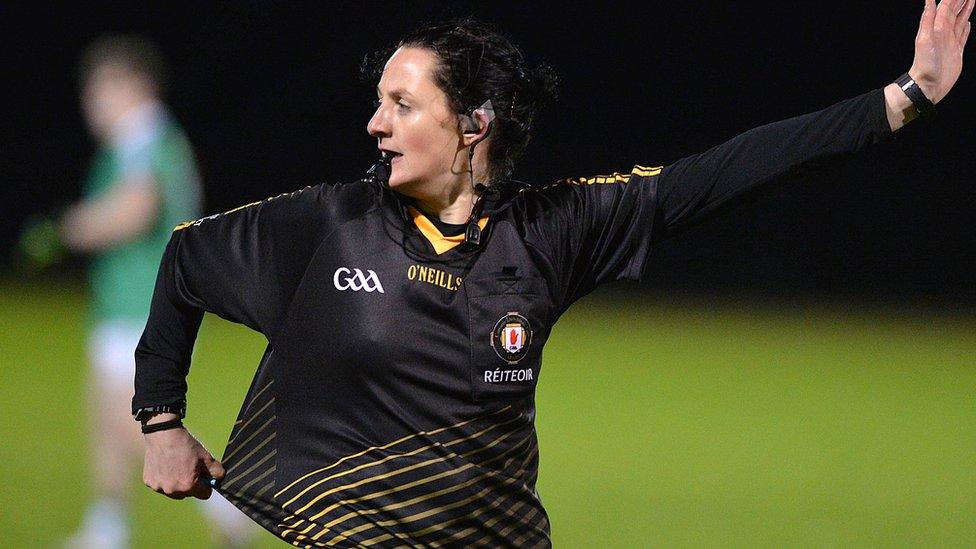GAA: The mothers picking up a Gaelic football again
- Published
GAA: The mothers picking up a Gaelic football again
"For one night a week, you aren't a wife and a mother. You are out there playing for yourself."
Siobhan Sargent started playing Gaelic football again when she was 28 after she moved to Draperstown, County Londonderry.
She plays for the Ballinascreen Mothers and Others team, an initiative set up by the GAA in 2008 to get women off the sidelines and playing Gaelic football for their local club.
"I used to play senior football but I stopped when I was 24," Ms Sargent said.
"I heard about the scheme when I moved here and I thought it would be a chance to meet people.
"It's been really brilliant for me, I have made such great friends through the team."
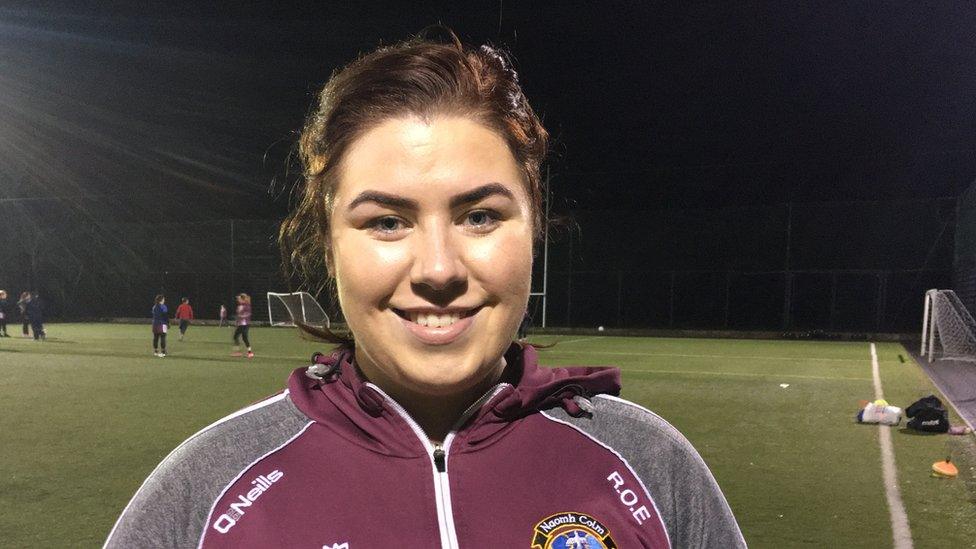
Siobhan Sargent started playing with the team after she moved to Draperstown a few years ago
Ballinascreen is one of nearly 60 clubs in Northern Ireland with a Mothers and Others side. There are currently 319 registered teams across the island of Ireland.
The scheme is growing in popularity year-on-year, 89 new teams have registered in 2019.
Eileen Watson started the team at Ballinascreen two years ago after a conversation with a group of mothers at the sideline of an underage blitz.
"We were out supporting our kids but we got talking about how we would all love to play ourselves.
"I looked into it and found out about the Mothers and Others scheme so we started looking for players in our club.
"When we ran out that first night, we were like teenagers again.
"Some of us could barely sleep that night, we were on such a high."
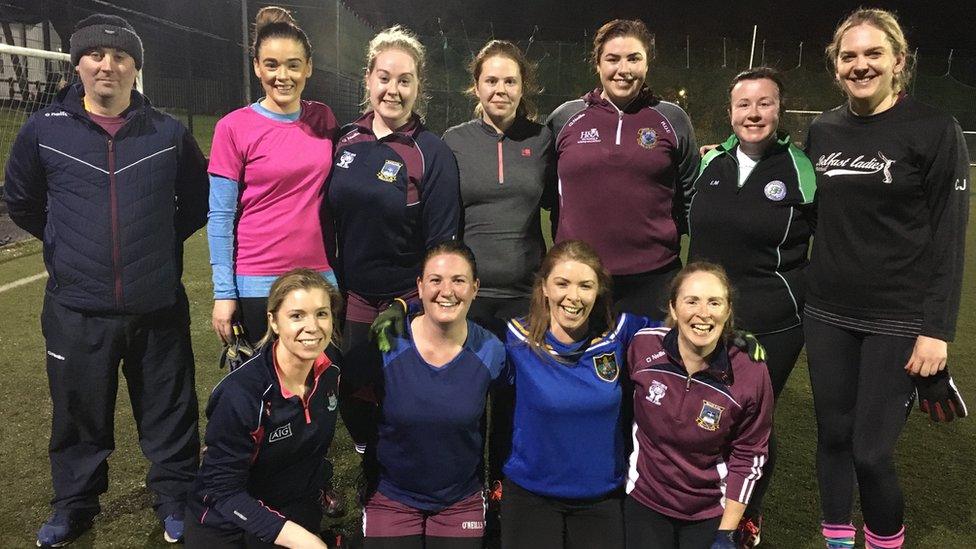
Teams take part in blitzes with other Mothers and Others sides
The team is made up of women who stopped playing Gaelic football when they were younger but also those who have no experience of the sport.
"We have ladies here who have had a lapse of a few years but we also have women coming down who never played," Ms Watson said.
"The girls who have played before teach some of the new players, we all encourage each other to get on.
"It's given me a new lease of life. You can't wait for Friday night to come."
Women are less likely than men to take part in sport at least once a year in Northern Ireland, external, according to the Department for Communities.
The scheme is non-competitive. The clubs play against each other in matches and blitzes but the score is not recorded.
The Ladies' Gaelic Football Association (LGFA) set up the initiative to "to provide a non-competitive, social, sporting and inclusive outlet for women over the age of 25".
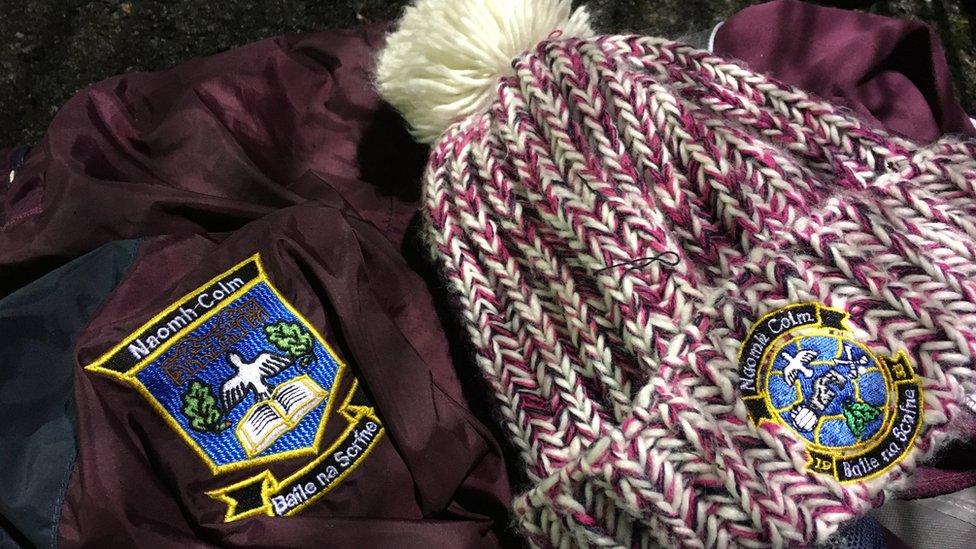
The Ballinascreen team train every Friday night all year round
The LGFA noted that some senior players stopped playing due to "the competitive nature of club football".
Christine Kelly had been playing for the senior team at Ballinascreen but spent most of her time on the substitutes' bench.
"There was such a big panel at seniors, I rarely got out playing a match.
"It's so different with this team, I play every match. Even if I am on the sidelines now, I shout for everyone out playing."
Confidence boost
Marguerite Quinn stopped playing Gaelic football 15 years ago and she felt nervous when she came down to the first training session.
"I was nervous at the start and it took me a while to pick up the skills again.
"My love for it came back straight away, from the minute I laced up my boots on the first night."
Mrs Quinn said training with the team has not only improved her fitness levels, it has boosted her confidence.
"It has just done so much for my confidence, I am getting out of the house and I am meeting new people.
"The two years have flown in and it just keeps getting better.
"It feels great to be out playing again."
- Published8 December 2019
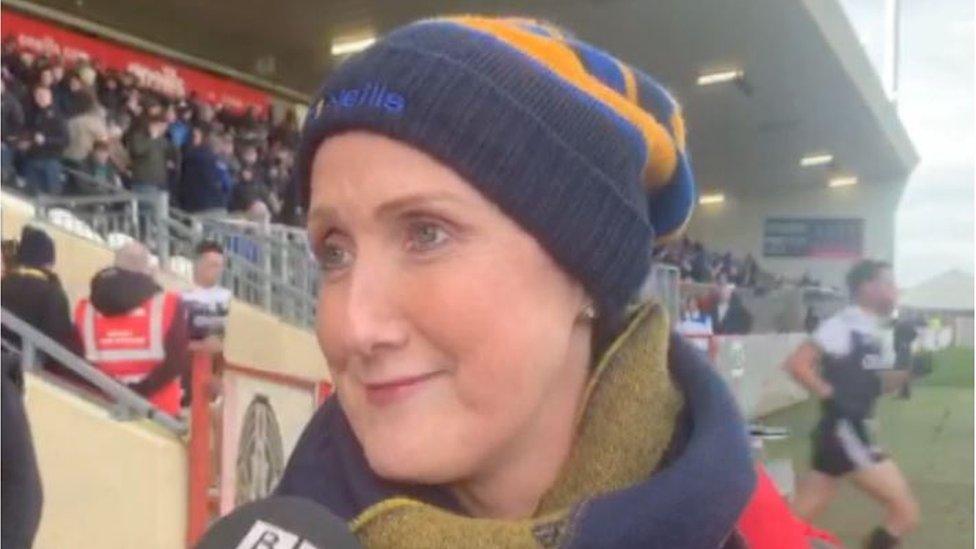
- Published6 July 2019
